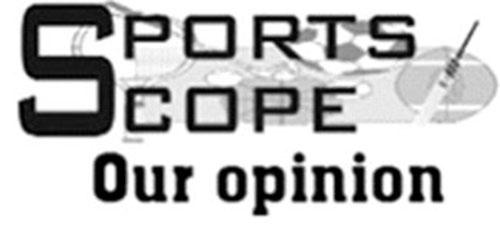Year-end Edition and Vaccination
As we swiftly approach the conclusion of 2021, the traditional year-end football spectacle will once again take centre stage on the sport’s calendar of local activities.
Right on cue, the GFF recently announced its intention, despite the prevailing COVID-19 climate, to conduct an unprecedented three tournaments during this festive period made famous and lucrative by the Kashif and Shanghai organisation.
While the details remain clandestine on the intricacies of the respective events, it is known that a Futsal and Women’s Championship, will complement the traditional Men’s tournament.
While it is assumed, at least from a general and common sense perspective, that the federation aims to test its systems during this period for an eventual return to play in 2022, they must be cognizant of the precedents it sets for developmental football.
In the last five years of the regular football cycle (2015-2019), the country witnessed a marked decline in developmental football (round robin leagues) at all levels across member associations. This is part of the legacy of the present administration.
In the simplest of explanations, innovative means must be envisioned for a return to the field. Mechanisms such as agreeing to play without spectators, using only certain facilities, playing seven-a-side leagues, utilising 24-hour COVID rapid tests for players and limiting touring party numbers to matches amongst others.
The planned year-end tournaments if staged must be a precursor to the return of developmental football. The local power brokers must not be used for financial gains for a certain grouping at the expense of development.
Playing one game and resting until next December is not developmental but simply detrimental. The same agency that will give permission for year-end knockout football must green-light league play at association level. Any other position or stance, is nothing short of hypocritical and can be viewed as politically motivated.
Even the vaccination requirement presents another area for discourse. The GFF is adamant on its policy of ‘vaccination only’ for participation in the events for players, officials and spectators.
However, it is somewhat perplexing that vaccination is still seen as the only mantra or pathway for the restart of football, given that the scientific community has repeatedly stated that fully vaccinated individuals can still be vectors of the virus.
The science is clear, no pseudo intellectuals needed to interpret that vaccination does not prevent the spreading of the virus. It simply mitigates the symptoms, while providing a form of protection. It also possesses the possibility of creating an unknown and unconscious vector.
The simple point is that the virus is transmissible by the vaccinated herd unknowingly given that PCR testing, as another mechanism or means of safeguard, will not be required of the inoculated. At best, this strategy of the GFF needs some form of refining.
ATC
A source close to the GFF general council, who spoke on the condition of anonymity, asked, “What is the role of the coaching education person from Brazil that is paid for the last years? Has he done a coaching manual or done sessions across the country?”
The source further said, “Secondly, neither the GFF nor the Associations have the capacity to presently administer fulltime ATC, thus there are just a few hours per week mostly weekends for ATC Sessions. Important to note is that ATC are under Associations who are 90 per cent dysfunctional long before COVID and this is evident when one looks at the association tournaments at all levels held between [the period of] 2017 to 2019.”
The recent metamorphosis in the administration of the ATC program by the GFF, was an expected consequence of an initially defective policy.
The adage, ‘Better late than never’, rings through in this regard, as associations, once financially empowered and retrofitted with the required equipment, are better suited to manage and develop this burgeoning platform.
Given Guyana’s consonant geographical, financial, and cultural football existence and limitations, ATC’s are a requirement for football development, and consequently, some benefits with regard to the national junior programs, have borne some fruit from the original version.
However, their application and administration, especially in the foreseeable future, must encompass the utilisation of full time professionals to maximise learning.
The aforementioned experts must be highly qualified to operate in that space. As such, each ATC should be spearheaded by a B-Licence coach because instilling the required technical and tactical knowledge in emerging talents requires the best teachers.
While this might not be a reality of the present day given the recent reimagining of the program, such an actuality must be achieved if a sustainable and aggressive coaching education policy is to be implemented.
Assistant Technical Director
The ascension of Linden native Bryan Joseph to the post of Assistant Technical Director (ATD) is certainly noteworthy, as the promotion of locals is desirable. However, respective ascensions must be based on merit, as performance output has to be measured, analyzed and eventually scrutinised.
The overarching issue should not be centered on personalities, but the quality that is afforded and brought to the respective office given the state of local football.
Hence, the appointment of a level ‘C’ coach to the post of ATD, and having to relate to the small cadre of ‘B’ level instructors, can be surmised or viewed, at times, with an element of loathing. Good luck on your promotion, you will need it in your attempts to aid in the development of the local content!






